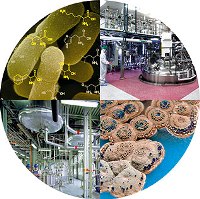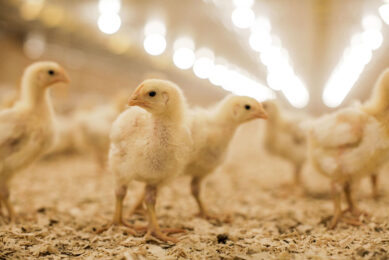Biotechnology is hot

The recent 2007 Biotechnology Industry Organization (BIO) International Convention held in Boston drew a record 22,366 attendees, a nearly 15% increase from the previous year. The convention is the world’s largest event for the biotechnology industry.
In reality, biotechnology not only is “transgenic”, but also encompasses
advances in genomics, bioinformatics, and molecular biology.
The bio
industry needs to communicate the fact that more precise information about the
genetic makeup of plants and animals (as well as plant and animal pests) can be
used in non-transgenic ways to make better food, fuel, and
fibre.
Information technology
“The convergence of information
technology and molecular biology dramatically increases agriculture’s potential
to supply fuel and animal feed as well as more nutritious food,” said Sano
Shimoda, president of California-based BioScience Securities.
Ray Riley,
global head of corn and soybean product development for Syngenta, pointed out
that agriculture based IT, such as gene sequencing and molecular markers
technology, is increasingly becoming focused on consumer attributes “rather than
just production by the pound.”
Cellulosic ethanol on edge of
breakthrough
Use of specialized enzymes for generating biofuels can
reduce or replace harsh chemicals that contaminate the environment and make the
process more productive and efficient.
In addition, new ‘no cook’ enzymes
extract the sugars in corn at room temperature, greatly reducing energy inputs
and improving the cost and environmental profile of ethanol made from corn
starch.
These advances in enzyme technology and microbial fermentation
have increased the efficiency of corn ethanol production by
20%.
Development of ethanol production from cellulosic biomass (such as
corn stalks, wheat straw, or switchgrass) is also on the cusp of commercial
production, due to dramatic advances in the development of cellulase
enzymes.
Industrial biotech companies have reduced the cost of the
cellulose-digesting enzymes used to make ethanol by 30-fold since 2001, from
over $5 per gallon (3.8 ltrs) of ethanol produced to under $0.20.
In
2004, Iogen Corporation became the first company to begin commercial production
of ethanol from cellulose, using biotech enzymes that convert wheat straw to
clean burning ethanol. At this moment several cellulosic ethanol biorefineries
are under construction or on the drawing boards.
The 2008 BIO International
Convention will be held June 17-20 in San Diego, California.











